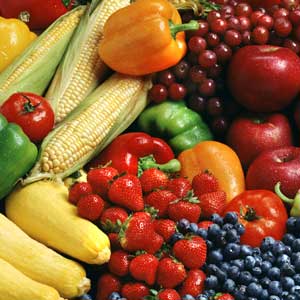
People who eat more raw fruits or drink juice do not necessarily have lower blood pressure, according to a new study that goes against previous evidence.
Larger, more rigorous studies have found that eating more fruits and vegetables does lower blood pressure over time, but the specific role of fruit remained unknown, lead author Dr Linda Oude-Griep said.
Based on the new results, it is unclear if eating more fruit will influence blood pressure, said Oude-Griep, of the Imperial College London School of Public Health. Oude-Griep and her coauthors analysed data from a study of 4 680 middle aged men and women randomly selected from Japan, China, US and UK.
Participants recalled what they had eaten the previous day two days in a row, having blood pressure measurements taken as well, then repeated the process three weeks later. Their blood pressures averaged at or just below 120/80, the safe cutoff point according to the Centers for Disease Control, but people with higher measurements were included.
Participants’ fruit consumption were calculated
The researchers calculated each person's fruit and fruit juice consumption as grams per 4200 kilojoules of food eaten. People in the US ate the least raw fruit, averaging 52 grams, equivalent to half an apple, per 4 200 kilojoules, compared to 68 grams in China, the country with highest consumption. Fruit juice was not commonly consumed in the Asian countries; in the US, the average was 46 grams, or less than a cup. For the group as a whole, there was no association between fruit and blood pressure.
When the researchers considered Japan and China alone, blood pressure actually increased with more fruit, but the change was almost imperceptible. But the study was small and only looked at one group of people at one point in time, so the results have limitations and the door is open for more research, Oude-Griep said."The main limitation of this study is that dietary intake was assessed on only a single day, and that is not a good representation of a person's usual diet," Dr Walter Willett told Reuters Health by email.
Previous studies results included decrease in blood pressure
Previous studies which found a decrease in blood pressure followed individual eating patterns over longer periods of time and were probably more reliable, said Willett, chair of the nutrition department at Harvard School of Public Health in Boston.
Other differences may have also played a role. In the new study, high fruit consumers were more often women, older, more educated, less likely to smoke or drink alcohol, and tended to have healthier diets overall. People who ate more fruit got more vitamin C, fiber, potassium and magnesium, according to the study.
Fruit juices contain lots of rapidly absorbed sugars that
might offset some of the benefits of fruit itself, Willett said."My main
concern is that this article should not dissuade people from eating fruit,
which has increasingly been found to be part of a healthy diet (along with
vegetables)," said Dr Martha Grogan, a cardiologist at the Mayo Clinic in
Rochester, Minnesota.
Most doctors don't expect eating more fruit to lower blood pressure by itself, but achieving a healthy weight does lower blood pressure, and eating more fruit and vegetables is a part of that process, Grogan said.




 Publications
Publications
 Partners
Partners










